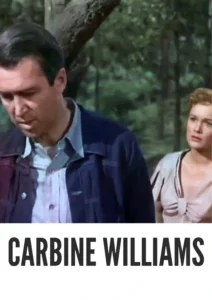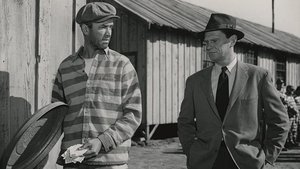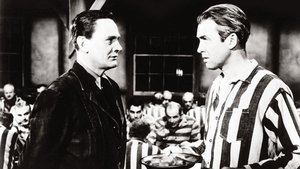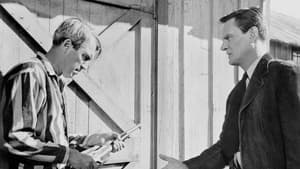Contact: [email protected]
Video Sources 0 Views
- Watch trailer
- Carbine Williams


Synopsis
Table of Contents
ToggleReview: Carbine Williams (1952) – A Riveting Portrait of Redemption and Innovation

Introduction
Carbine Williams, released in 1952, stands as a compelling biographical drama directed by Richard Thorpe. This film tells the remarkable true story of David Marshall “Carbine” Williams, a man whose ingenuity and determination transformed the world of firearms manufacturing. In this review, we’ll explore the gripping narrative of Carbine Williams and its enduring impact on audiences worldwide.
Check The Full Colorized Movies List
Check Our Colorized Movies Trailer Channel
Understanding Carbine Williams (1952): Director, Cast, and Genre
Directed by Richard Thorpe, Carbine Williams features a talented cast led by James Stewart and Jean Hagen. The film falls within the biographical drama genre, known for its exploration of real-life events and historical figures.
Exploring the World of Carbine Williams (1952): Plot and Characters
Carbine Williams follows the journey of David Marshall “Carbine” Williams (James Stewart), a convicted felon with a knack for engineering and innovation. After being imprisoned for manslaughter, Williams finds redemption and purpose when he begins to design a revolutionary firearm during his time in prison. With the support of his wife Maggie (Jean Hagen) and the encouragement of the prison warden (Wendell Corey), Williams sets out to prove his worth and make a positive contribution to society. As he navigates the challenges of his past and fights for his freedom, Williams’ story serves as a testament to the power of resilience and determination in the face of adversity.
The Art of Film Colorization
While Carbine Williams was originally filmed in black and white, its early colorized version adds a new dimension to its visual storytelling and historical setting. The colorization process enhances the film’s atmospheric cinematography and captures the vibrant hues of the American South, immersing viewers in the rich tapestry of Williams’ journey from incarceration to innovation.
Early Colored Films: A Brief History
The history of early colored films is marked by innovation and experimentation as filmmakers sought to enhance the visual appeal of their movies. From hand-tinted frames to groundbreaking technicolor processes, the evolution of colorization techniques transformed the cinematic landscape, offering audiences a new way to experience their favorite stories.
Carbine Williams (1952) and Its Early Colored Version
The decision to release Carbine Williams in a colorized format was made with the intention of immersing audiences in the rich historical setting of the film and enhancing its visual appeal. While some purists may prefer the original black and white version, the early colorized edition of the film adds a new layer of depth to its storytelling and captures the vibrant spirit of Williams’ journey with authenticity and nuance.
The Debate Over Film Colorization
The debate over film colorization continues to divide audiences and industry professionals alike. While some argue that colorization enhances the visual appeal of classic films and makes them more accessible to modern audiences, others maintain that it compromises the artistic integrity of the original work. As technology advances and filmmaking techniques evolve, the debate over colorization remains a topic of ongoing discussion within the film community.
Examining Carbine Williams (1952) as an Early Colored Film
Viewing Carbine Williams in its early colorized iteration offers audiences a fresh perspective on its historical setting and thematic depth. The colorization process enhances the film’s atmospheric cinematography and brings to life the vibrant world of post-war America, immersing viewers in the challenges and triumphs of Williams’ remarkable journey. As Williams battles against the odds to prove his innocence and make a positive impact on society, his story resonates with timeless themes of resilience, redemption, and the pursuit of justice.
Influence and Legacy: Carbine Williams (1952)’s Impact on Cinema
Carbine Williams is widely regarded as a captivating biographical drama that celebrates the indomitable human spirit and the power of innovation. Its portrayal of David Marshall “Carbine” Williams’ journey from convict to inventor has inspired audiences around the world and influenced the depiction of perseverance and determination in popular culture. As a testament to its enduring relevance, Carbine Williams remains a stirring and inspirational cinematic experience that continues to captivate audiences of all ages.
Director’s Cinematic Legacy: Beyond Carbine Williams (1952)
Richard Thorpe’s directorial legacy extends far beyond Carbine Williams, encompassing a diverse body of work that spans multiple genres and styles. As a filmmaker, Thorpe was known for his ability to tell compelling stories with heart and authenticity, as evidenced by his masterful direction of Carbine Williams. The film stands as a testament to his talent and creativity, solidifying his reputation as one of the great directors of his time.
Themes Explored in Carbine Williams (1952)
At its core, Carbine Williams explores themes of redemption, innovation, and the pursuit of justice in the face of adversity. Through its compelling narrative and nuanced characters, the film delves into the complexities of the human experience and celebrates the resilience of the human spirit. As David Marshall “Carbine” Williams fights against injustice and prejudice, his story serves as a powerful reminder of the transformative power of perseverance and determination.
Reception and Controversy Surrounding Carbine Williams (1952)
Upon its release, Carbine Williams received widespread critical acclaim for its gripping narrative, compelling performances, and historical authenticity. However, the decision to release the film in a colorized format sparked debate among fans and critics alike. While some praised the colorization process for enhancing the film’s visual appeal, others questioned its necessity and expressed concern about preserving the integrity of Thorpe’s original vision.
Where to Watch Carbine Williams (1952) Online
For those eager to experience Carbine Williams for themselves, the film is readily available on popular streaming platforms such as Amazon Prime Video, Google Play Movies, and iTunes. Whether viewed in its original black and white format or its early colorized iteration, Carbine Williams offers a captivating and inspirational cinematic experience that is sure to leave a lasting impression.
FAQs About Carbine Williams (1952)
1. Is Carbine Williams based on a true story?
Yes, Carbine Williams is based on the true story of David Marshall “Carbine” Williams, a convicted felon who invented a revolutionary firearm while serving time in prison. His remarkable journey from incarceration to innovation has inspired audiences around the world and continues to resonate with audiences today.
2. Who starred in Carbine Williams?
Carbine Williams stars James Stewart as David Marshall “Carbine” Williams and Jean Hagen as Maggie, his devoted wife. Their compelling performances bring depth and authenticity to their respective roles, elevating the emotional resonance of the film and capturing the spirit of Williams’ remarkable journey.
3. What is the central conflict of Carbine Williams?
At its core, Carbine Williams revolves around the central conflict between injustice and innovation. As David Marshall “Carbine” Williams fights against prejudice and false accusations, he also seeks to make a positive contribution to society through his groundbreaking inventions. His struggle for redemption and recognition serves as the driving force behind the film’s narrative.
4. Why was Carbine Williams released in a colorized format?
The decision to release Carbine Williams in a colorized format was made with the intention of immersing audiences in the rich historical setting of the film and enhancing its visual appeal. While some purists may prefer the original black and white version, the early colorized edition of the film adds a new layer of depth to its storytelling and captures the vibrant spirit of Williams’ journey with authenticity and nuance.
5. What is the legacy of Carbine Williams?
Carbine Williams is widely regarded as a stirring and inspirational biographical drama that celebrates the indomitable human spirit and the power of innovation. Its portrayal of David Marshall “Carbine” Williams’ journey from convict to inventor has inspired audiences around the world and influenced the depiction of perseverance and determination in popular culture.
6. Are there any sequels or remakes of Carbine Williams?
No, there are no direct sequels or remakes of Carbine Williams. However, the film’s enduring legacy and timeless themes have left an indelible mark on the portrayal of perseverance and determination in cinema, inspiring countless imitators and influencing the way historical figures are depicted onscreen.
7. Where can I watch Carbine Williams online?
For those eager to experience Carbine Williams for themselves, the film is readily available on popular streaming platforms such as Amazon Prime Video, Google Play Movies, and iTunes. Whether viewed in its original black and white format or its early colorized iteration, Carbine Williams offers a captivating and inspirational cinematic experience that is sure to leave a lasting impression.
Conclusion
In conclusion, Carbine Williams remains a gripping and inspirational biographical drama that celebrates the indomitable human spirit and the power of innovation. Whether viewed in its original black and white format or its early colorized iteration, Richard Thorpe’s classic film offers a compelling portrait of redemption, resilience, and the pursuit of justice. As viewers immerse themselves in the remarkable journey of David Marshall “Carbine” Williams, they are reminded of the transformative power of perseverance and determination in the face of adversity.













